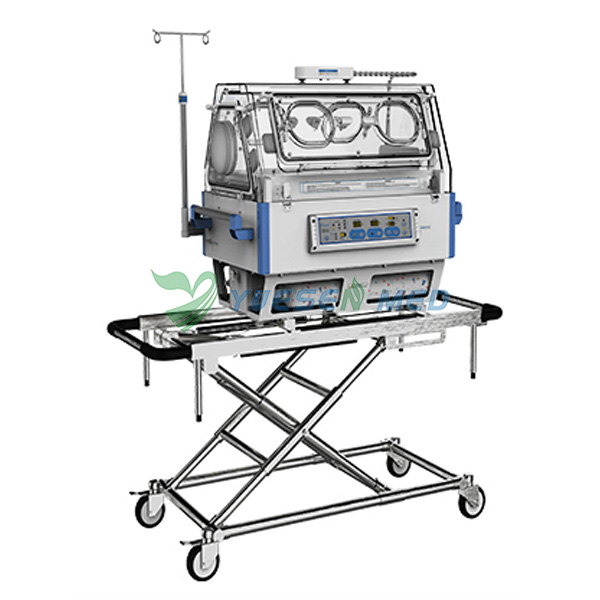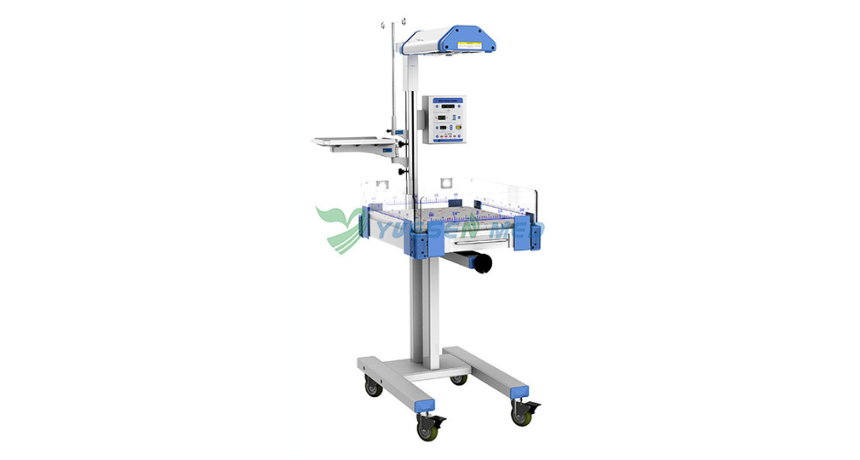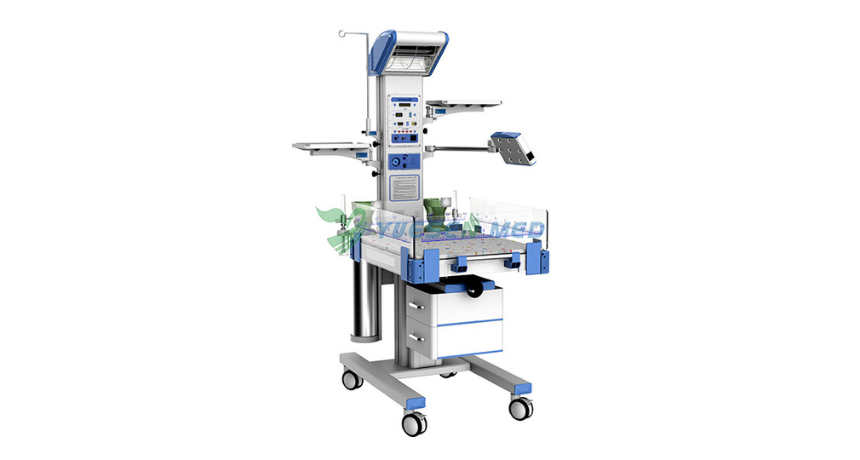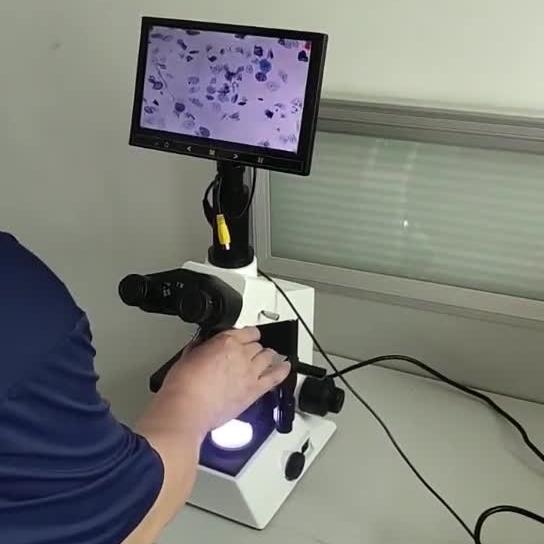Hot Products
YSX500D 50kW DR system set up and put into service in Cambodia.
YSENMED YSX500D 50kW digital x-ray system has been successfully set up and put into service in a hospital in Cambodia.
YSX056-PE serving as a vehicle-mounted x-ray in the Philippines
YSX056-PE 5.6kW portable x-ray unit has been adapted to fit on a truck, to provide mobile x-ray examination service for remote communities in the Philippines.
X Ray Machine To Zimbabwe
x ray machine, 50KW x ray machine
Microscope To Malawi
Achromatic objectives: 4X、10X、40X(S), 100X(S、Oil) Wide field eyepiece: WF10X(WF16X for option) Eyepiece head: Sliding binocular head inclined at 45° Stage: Double layer mechanical stage size 140X140mm, moving range 75X45mm Focusing: Coaxial coarse and
From the NICU to Anywhere: How Baby Transport Incubators Ensure Safe Transfers
Views : 860
Update time : 2024-12-31 15:54:41
When a newborn needs to be transported from one medical facility to another, especially from the Neonatal Intensive Care Unit (NICU), the stakes are incredibly high. The fragile lives of premature or critically ill infants depend on specialized equipment and careful handling. Enter baby transport incubators—remarkable devices designed to ensure that these tiny patients can travel safely and comfortably. In this article, we'll explore how these incubators work, their importance, and what makes them a vital part of neonatal care.

Understanding the NICU
What is the NICU?
The NICU, or Neonatal Intensive Care Unit, is a specialized section of a hospital dedicated to the care of ill or premature newborns. Here, medical professionals provide around-the-clock monitoring and treatment, utilizing advanced technology to support the tiniest patients.
Why Do Babies Need the NICU?
Premature babies or those with health issues often require specialized care that regular maternity wards cannot provide. Conditions like respiratory distress, congenital abnormalities, or infections necessitate the high level of medical intervention found in the NICU.
The Role of Baby Transport Incubators
What is a Baby Transport Incubator?
A baby transport incubator is a portable device that mimics the conditions of a NICU. It's equipped to regulate temperature, humidity, and oxygen levels, ensuring that the baby remains stable during transport.
How Do They Work?
These incubators are designed with several critical features:
- Thermal Regulation: They maintain a consistent temperature to prevent hypothermia, which is a significant risk for premature infants.
- Oxygen Supply: Many models can deliver supplemental oxygen, crucial for babies with respiratory issues.
- Monitoring Systems: Integrated monitors track vital signs, allowing healthcare providers to keep a close eye on the baby's condition during transit.
Why Safe Transport Matters
The Risks of Transporting Newborns
Transporting a newborn can pose several risks, including:
- Temperature Loss: Babies can lose body heat quickly, leading to hypothermia.
- Respiratory Distress: Changes in environment can exacerbate breathing problems.
- Infection: Transporting a vulnerable infant increases the risk of exposure to pathogens.
The Importance of Specialized Equipment
Using a baby transport incubator minimizes these risks significantly. These devices are designed to provide a controlled environment, making the transfer as safe as possible.
Features of Modern Baby Transport Incubators
Advanced Temperature Control
Modern incubators come with sophisticated heating systems that adjust automatically to maintain the desired temperature, even if the external conditions change.
Humidity Regulation
Maintaining appropriate humidity levels is crucial for preventing dehydration in infants. Many incubators now feature advanced humidity control systems.
Portability and Ease of Use
Today's transport incubators are designed for easy maneuverability. They often come with wheels and lightweight materials, allowing for smooth transfers through hospitals or between facilities.
The Transportation Process
Preparing for Transport
Before transferring a baby, medical staff must ensure that the incubator is fully functional. This includes checking all monitoring systems and ensuring that the temperature and humidity settings are optimal.
Loading the Baby
When it's time to load the baby into the incubator, trained personnel use gentle techniques to minimize any stress or discomfort. This is crucial for maintaining the baby's stability.
Monitoring During Transit
Once the baby is secured, medical staff continuously monitor vital signs throughout the journey. This real-time data allows for immediate intervention if any issues arise.
Innovations in Baby Transport Incubators
Smart Technology Integration
Many modern incubators now incorporate smart technology, allowing for remote monitoring by healthcare providers. This can be a game-changer in critical situations, as it enables immediate access to vital information.
Enhanced Safety Features
Newer models are equipped with additional safety features, such as alarms that alert staff to any changes in the baby's condition or the incubator's environment.
The Future of Baby Transport Incubators
Ongoing Research and Development
As technology advances, we can expect even more innovations in baby transport incubators. Researchers are continually looking for ways to improve safety, comfort, and functionality.
Training and Education
Proper training for medical staff is essential to ensure that these devices are used effectively. Ongoing education about the latest technologies and techniques will help improve outcomes for transported infants.
Conclusion
Baby transport incubators are a crucial component of neonatal care, ensuring that fragile infants can be moved safely and comfortably from one place to another. With their advanced features and ongoing innovations, these devices not only protect the health of newborns but also provide peace of mind for parents and healthcare providers alike. As we continue to learn and develop better technologies, the future of neonatal transport looks brighter than ever. Whether it's a routine transfer or an emergency situation, baby transport incubators stand ready to ensure that every tiny patient gets the best chance at life.
FAQ
What is a baby transport incubator?
A baby transport incubator is a specialized piece of medical equipment designed to provide a controlled environment for newborns during transport. It maintains optimal temperature, humidity, and oxygen levels, mimicking the conditions found in a Neonatal Intensive Care Unit (NICU). This ensures that fragile infants can be safely moved between hospitals or within a medical facility without compromising their health.
Why are baby transport incubators important?
Transport incubators are vital because they protect vulnerable newborns during transit. Premature infants or those with health issues are particularly susceptible to temperature fluctuations, respiratory distress, and infections. These incubators help mitigate these risks by creating a stable environment, allowing medical professionals to monitor the baby's condition closely throughout the transfer.
How do medical staff prepare for a transport using an incubator?
Before transporting a newborn in an incubator, medical staff conduct thorough checks to ensure the device is functioning correctly. This includes verifying that the temperature and humidity settings are appropriate, monitoring systems are operational, and that all necessary supplies, such as oxygen, are available. Staff also prepare the baby by ensuring they are stable and securely positioned within the incubator.
Can parents accompany their baby during transport?
In many cases, parents are encouraged to accompany their baby during transport, as their presence can provide emotional support. However, this depends on the specific circumstances and protocols of the medical facility. Parents should communicate with healthcare providers to understand the options available to them during the transfer process.
What advancements are being made in baby transport incubators?
Recent innovations in baby transport incubators include the integration of smart technology for remote monitoring, enhanced safety features like alarms for vital signs, and improved portability for easier maneuverability. Ongoing research aims to further enhance the functionality and safety of these devices, ensuring that they continue to meet the evolving needs of neonatal care.

Understanding the NICU
What is the NICU?
The NICU, or Neonatal Intensive Care Unit, is a specialized section of a hospital dedicated to the care of ill or premature newborns. Here, medical professionals provide around-the-clock monitoring and treatment, utilizing advanced technology to support the tiniest patients.
Why Do Babies Need the NICU?
Premature babies or those with health issues often require specialized care that regular maternity wards cannot provide. Conditions like respiratory distress, congenital abnormalities, or infections necessitate the high level of medical intervention found in the NICU.
The Role of Baby Transport Incubators
What is a Baby Transport Incubator?
A baby transport incubator is a portable device that mimics the conditions of a NICU. It's equipped to regulate temperature, humidity, and oxygen levels, ensuring that the baby remains stable during transport.
How Do They Work?
These incubators are designed with several critical features:
- Thermal Regulation: They maintain a consistent temperature to prevent hypothermia, which is a significant risk for premature infants.
- Oxygen Supply: Many models can deliver supplemental oxygen, crucial for babies with respiratory issues.
- Monitoring Systems: Integrated monitors track vital signs, allowing healthcare providers to keep a close eye on the baby's condition during transit.
Why Safe Transport Matters
The Risks of Transporting Newborns
Transporting a newborn can pose several risks, including:
- Temperature Loss: Babies can lose body heat quickly, leading to hypothermia.
- Respiratory Distress: Changes in environment can exacerbate breathing problems.
- Infection: Transporting a vulnerable infant increases the risk of exposure to pathogens.
The Importance of Specialized Equipment
Using a baby transport incubator minimizes these risks significantly. These devices are designed to provide a controlled environment, making the transfer as safe as possible.
Features of Modern Baby Transport Incubators
Advanced Temperature Control
Modern incubators come with sophisticated heating systems that adjust automatically to maintain the desired temperature, even if the external conditions change.
Humidity Regulation
Maintaining appropriate humidity levels is crucial for preventing dehydration in infants. Many incubators now feature advanced humidity control systems.
Portability and Ease of Use
Today's transport incubators are designed for easy maneuverability. They often come with wheels and lightweight materials, allowing for smooth transfers through hospitals or between facilities.
The Transportation Process
Preparing for Transport
Before transferring a baby, medical staff must ensure that the incubator is fully functional. This includes checking all monitoring systems and ensuring that the temperature and humidity settings are optimal.
Loading the Baby
When it's time to load the baby into the incubator, trained personnel use gentle techniques to minimize any stress or discomfort. This is crucial for maintaining the baby's stability.
Monitoring During Transit
Once the baby is secured, medical staff continuously monitor vital signs throughout the journey. This real-time data allows for immediate intervention if any issues arise.
Innovations in Baby Transport Incubators
Smart Technology Integration
Many modern incubators now incorporate smart technology, allowing for remote monitoring by healthcare providers. This can be a game-changer in critical situations, as it enables immediate access to vital information.
Enhanced Safety Features
Newer models are equipped with additional safety features, such as alarms that alert staff to any changes in the baby's condition or the incubator's environment.
The Future of Baby Transport Incubators
Ongoing Research and Development
As technology advances, we can expect even more innovations in baby transport incubators. Researchers are continually looking for ways to improve safety, comfort, and functionality.
Training and Education
Proper training for medical staff is essential to ensure that these devices are used effectively. Ongoing education about the latest technologies and techniques will help improve outcomes for transported infants.
Conclusion
Baby transport incubators are a crucial component of neonatal care, ensuring that fragile infants can be moved safely and comfortably from one place to another. With their advanced features and ongoing innovations, these devices not only protect the health of newborns but also provide peace of mind for parents and healthcare providers alike. As we continue to learn and develop better technologies, the future of neonatal transport looks brighter than ever. Whether it's a routine transfer or an emergency situation, baby transport incubators stand ready to ensure that every tiny patient gets the best chance at life.
FAQ
What is a baby transport incubator?
A baby transport incubator is a specialized piece of medical equipment designed to provide a controlled environment for newborns during transport. It maintains optimal temperature, humidity, and oxygen levels, mimicking the conditions found in a Neonatal Intensive Care Unit (NICU). This ensures that fragile infants can be safely moved between hospitals or within a medical facility without compromising their health.
Why are baby transport incubators important?
Transport incubators are vital because they protect vulnerable newborns during transit. Premature infants or those with health issues are particularly susceptible to temperature fluctuations, respiratory distress, and infections. These incubators help mitigate these risks by creating a stable environment, allowing medical professionals to monitor the baby's condition closely throughout the transfer.
How do medical staff prepare for a transport using an incubator?
Before transporting a newborn in an incubator, medical staff conduct thorough checks to ensure the device is functioning correctly. This includes verifying that the temperature and humidity settings are appropriate, monitoring systems are operational, and that all necessary supplies, such as oxygen, are available. Staff also prepare the baby by ensuring they are stable and securely positioned within the incubator.
Can parents accompany their baby during transport?
In many cases, parents are encouraged to accompany their baby during transport, as their presence can provide emotional support. However, this depends on the specific circumstances and protocols of the medical facility. Parents should communicate with healthcare providers to understand the options available to them during the transfer process.
What advancements are being made in baby transport incubators?
Recent innovations in baby transport incubators include the integration of smart technology for remote monitoring, enhanced safety features like alarms for vital signs, and improved portability for easier maneuverability. Ongoing research aims to further enhance the functionality and safety of these devices, ensuring that they continue to meet the evolving needs of neonatal care.
Related News
Read More >>
 Is an Infant Radiant Warmer Good for Babies' Health?
Is an Infant Radiant Warmer Good for Babies' Health?
Apr .13.2025
What exactly is the infant radiant warmer, and how does it contribute to a baby's health? Let's dive into this topic and explore the ins and outs of infant radiant warmers.
 What is an Infant Radiant Warmer?
What is an Infant Radiant Warmer?
Apr .12.2025
One of the unsung heroes in neonatal care is the infant radiant warmer. But what exactly is it? Let's dive into the world of infant care and explore the ins and outs of this vital device.
 Introduction video of YSENMED YSXWJ-BX301B Digital Biological Microscope.
Introduction video of YSENMED YSXWJ-BX301B Digital Biological Microscope.
Apr .01.2025
Here we share the introduction video of YSENMED YSXWJ-BX301B Digital Biological Microscope.
 YSDR-VET320 veterinary DR & YSB-DU10V color ultrasound serving well in Kiram Veterinary Surgery in Uganda
YSDR-VET320 veterinary DR & YSB-DU10V color ultrasound serving well in Kiram Veterinary Surgery in Uganda
Mar .31.2025
Kiram Veterinary Surgery in Uganda shares the clear images they have got from YSDR-VET320 veterinary digital x-ray system and YSB-DU10V vet color ultrasound machine.



